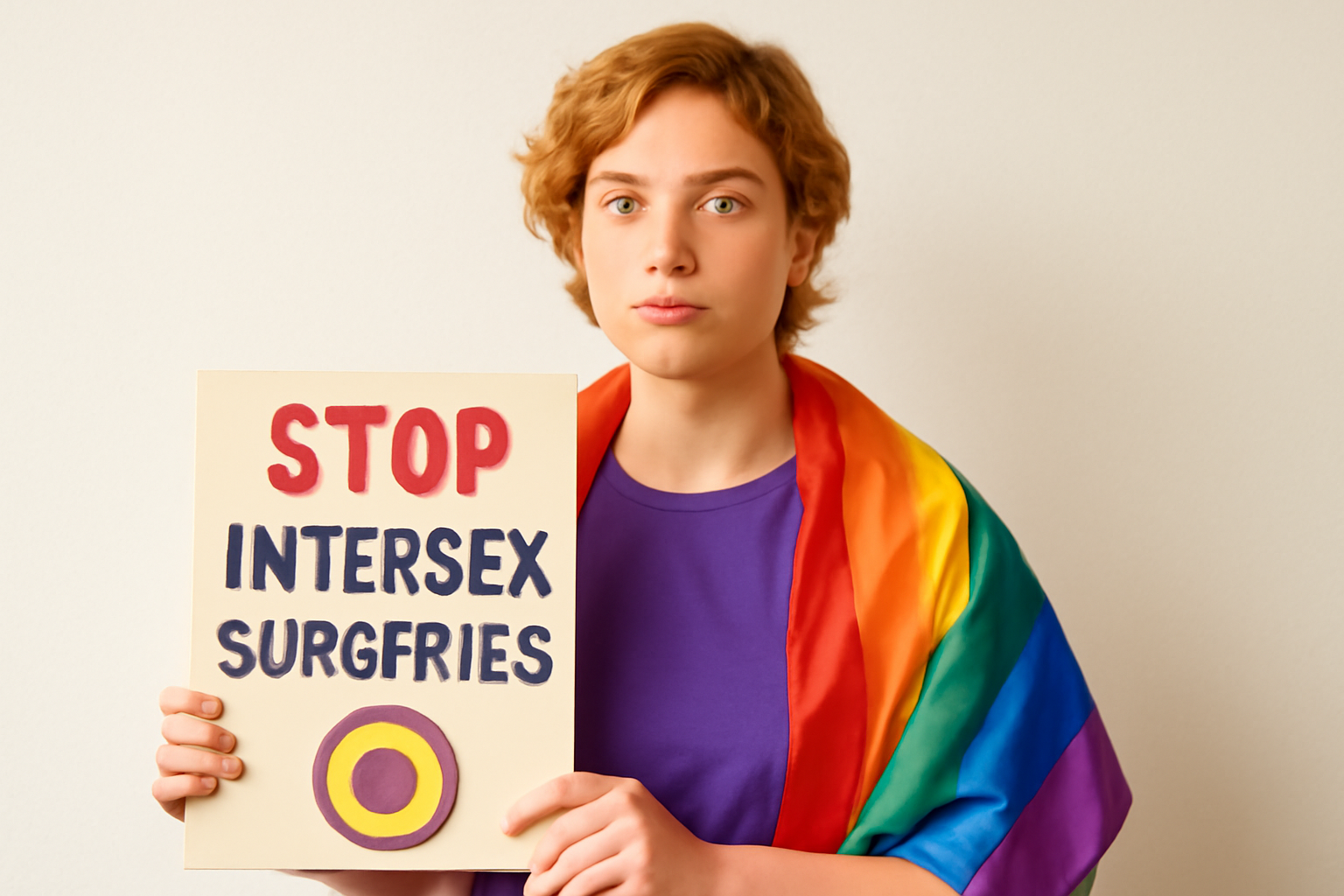
In a significant move towards protecting intersex individuals, a major health organization has announced its opposition to nonconsensual surgeries performed on intersex children. This decision marks a pivotal moment in the ongoing struggle for human rights and bodily autonomy for intersex people, emphasizing the need for consent and informed decision-making in medical procedures.
The Background on Intersex Surgeries
Intersex individuals are born with physical sex characteristics that don’t fit typical binary notions of male or female bodies. According to experts, approximately 1.7% of the global population possesses intersex traits, making intersex variations as common as having red hair. Despite the prevalence, intersex people often face significant medical interventions aimed at "normalizing" their bodies, often without their informed consent.
Historically, these surgeries have been performed on infants or young children, based on the assumption that they will help the child fit into societal gender norms. However, these procedures can result in severe physical and psychological consequences, including loss of sexual function, chronic pain, and trauma. Many intersex adults have spoken out against these early surgeries, advocating for the right to bodily autonomy and self-determination.
The Health Organization's New Stance
In light of these concerns, the health organization has issued a statement advocating against nonconsensual medical procedures on intersex individuals. The statement highlights the importance of delaying any irreversible surgeries until the individual is old enough to participate in the decision-making process themselves.
The organization underscores that "interventions on intersex children should not be undertaken without the individual's fully informed consent, except in cases where urgent medical necessity is established." This landmark stance is expected to influence medical practices and policies, encouraging healthcare providers to reconsider their approach to intersex variations.
Support from Human Rights Advocates
This move has been warmly welcomed by human rights advocates and organizations dedicated to the rights of intersex people. Activists have long called for the cessation of these surgeries, citing the violation of human rights and the need for bodily integrity.
"This is a huge step forward," said one activist. "For too long, intersex people have been subjected to unnecessary medical interventions that leave lasting scars. Now, with this new policy, we have a chance to make sure future generations are spared the trauma of nonconsensual surgeries."
Intersex advocacy groups have been pivotal in raising awareness about the issues faced by intersex individuals. By sharing personal stories and highlighting the negative outcomes of past surgeries, they have brought the conversation to a broader audience, garnering more support for their cause.
A Global Perspective on Intersex Rights
The organization's stance is part of a growing global movement advocating for the rights of intersex people. Several countries, including Malta, have already passed legislation banning nonconsensual surgeries on intersex children, setting a precedent for others to follow.
International organizations like the United Nations have also called for an end to these practices, recognizing them as human rights violations. As more countries and institutions join the movement, there is hope for significant changes in how intersex variations are perceived and treated worldwide.
Moving Forward
While the announcement marks a positive shift, advocates stress that the fight for intersex rights is far from over. Continuous education and awareness are crucial to ensure that medical professionals and society as a whole respect and understand the needs of intersex individuals.
It is essential for parents, educators, and healthcare providers to support intersex children in exploring their identity, free from the pressures of conforming to traditional gender norms. By fostering an environment of acceptance and understanding, society can help intersex people lead healthy, fulfilling lives.
In conclusion, the organization's stand against nonconsensual intersex surgeries is a significant victory in the fight for human rights. It sends a powerful message about the importance of bodily autonomy and sets the stage for further advancements in the recognition and acceptance of intersex individuals across the globe.
Related Posts
Exciting New Images Released for '100 Nights of Hero': A Captivating Historical Fantasy
Unpacking '100 Nights Of Hero': A First Look If you're a fan who loves getting lost in historical fantasy, get ready because new images from *100 Nights Of Hero* have just dropped. This much-anticipated film stars Nicholas Galitzine, Emma Corrine, and Charli XCX, and brings Isabel Greenberg's beloved graphic novel storybook magic onto screens. Under Julia Jackman‘s masterful direction, *100 Ni [...]
Mary Trump Critiques Her Uncle's Use of Religion for Political Gain
Mary Trump, a clinical psychologist and openly lesbian, has been quite vocal about her criticisms regarding her uncle, former President Donald Trump. Recently, she took issue with how he uses religion as a means, in her view, simply as a tool, especially evident when discussing his decision on a military strike against Iran. In her blog, she expressed concerns that invoking God was less about fait [...]
The Enduring Journey from Darkness to Light: A Story of Resilience
One key part about taking charge in life? Defining yourself instead being shaped by someone else. It's all about living true and breaking away from those social norms dictating who "deserves" rights based on identity or fitting in with mainstream ideas. Often, society creates these isolating "closets" that keep people who dare defy these norms hidden and unsafe. History shows how religion's been [...]